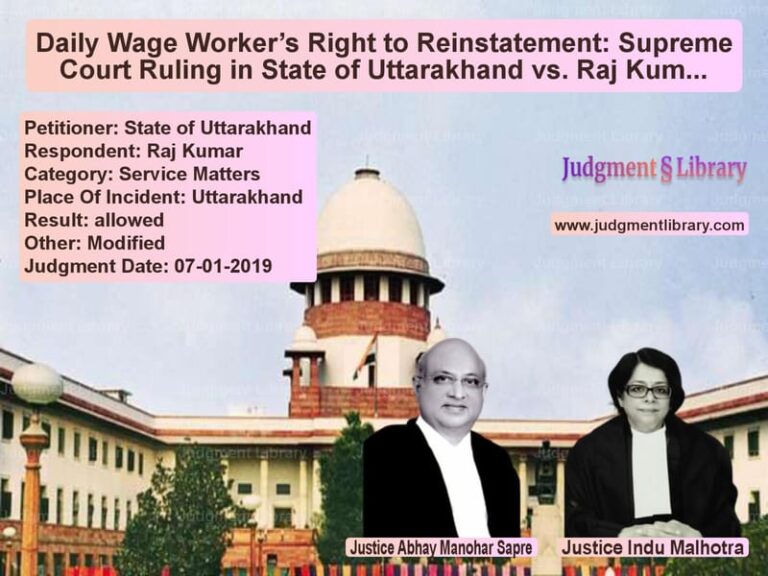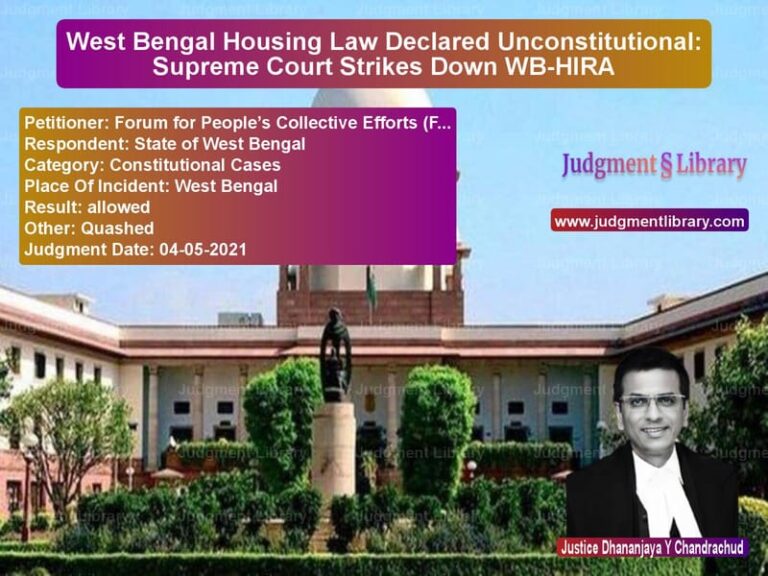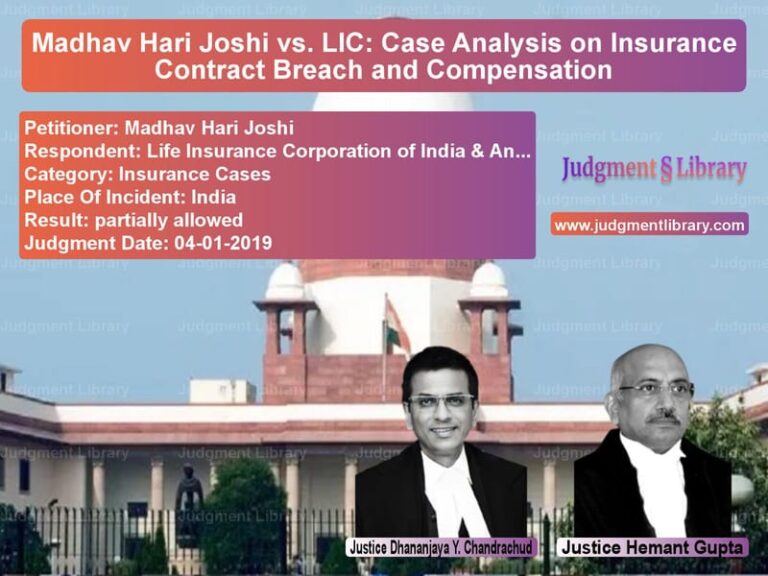Vyapam Scam: Supreme Court Upholds Cancellation of Fraudulent MBBS Admissions
The Supreme Court of India delivered a landmark ruling on February 13, 2017, in the case of Nidhi Kaim and another vs. State of Madhya Pradesh and others. The case was one of the most significant judicial decisions concerning the infamous Vyapam scam, where admissions to medical colleges were obtained through fraudulent means. The Supreme Court upheld the cancellation of MBBS admissions that had been secured using unfair practices, reinforcing the legal principle that fraud vitiates everything.
The judgment emphasized the need for integrity in medical education and professional ethics. It also set a strong precedent against attempts to justify fraudulent admissions based on the argument that the students had already completed a part of their medical education.
Background of the Case
The Vyapam scam (Madhya Pradesh Professional Examination Board scam) was one of India’s largest education frauds, involving:
- Widespread use of impersonation during entrance exams.
- Manipulation of answer sheets.
- Collusion between officials and students to secure admissions through unfair means.
The scam affected various professional courses, including MBBS admissions from 2008 to 2013. Upon discovery, the Madhya Pradesh government ordered an investigation, which led to the cancellation of hundreds of fraudulent admissions.
The affected students challenged the cancellation before the Madhya Pradesh High Court, which upheld the government’s decision. The students then appealed to the Supreme Court, seeking relief under Article 142 of the Constitution.
Petitioners’ (Students’) Arguments
The students who lost their admissions made the following arguments:
- They had already completed a substantial part of their MBBS course and gained medical knowledge.
- Some students claimed they were minors at the time of admission and were unaware of the fraudulent process used by their families.
- They sought relief under Article 142 of the Constitution, requesting the Court to allow them to complete their medical education.
- They proposed alternative penalties such as financial fines or mandatory community service instead of cancellation.
Respondents’ (State of Madhya Pradesh) Arguments
The State of Madhya Pradesh and Vyapam defended the cancellations, arguing:
- Fraudulent admissions could not be legitimized under any circumstances, as doing so would set a dangerous precedent.
- Allowing such students to continue would undermine public confidence in the education system.
- There was substantial evidence proving that these admissions were secured through impersonation and bribery.
- Medical ethics demand that only meritorious and fairly admitted students be allowed to become doctors.
Supreme Court’s Ruling
The Supreme Court, after considering all arguments, upheld the cancellation of admissions. The key findings of the Court were:
- The principle of “fraud vitiates everything” applies, meaning that any action based on fraud is null and void.
- The students’ claim of innocence was not tenable, as the fraudulent nature of admissions was undeniable.
- Allowing these students to become doctors would compromise the integrity of the medical profession.
- Article 142 could not be invoked to override constitutional and legal principles.
Legal Precedents Cited
The Court referred to several key judgments reinforcing the principle that fraud cannot be legitimized. It relied on precedents stating that:
- Any action obtained through fraudulent means must be reversed.
- Legal provisions that protect fairness in admissions must be strictly enforced.
- Courts cannot use discretionary powers to condone illegal acts.
Impact of the Judgment
This ruling had wide-ranging implications:
- It reaffirmed the principle that education fraud will not be tolerated.
- It ensured accountability in professional courses, particularly in medical education.
- It reinforced the public’s confidence in India’s legal system by refusing to protect fraudulently admitted students.
Public Reaction
The ruling was met with mixed reactions:
- Legal experts praised the Court for maintaining the integrity of medical education.
- Parents of affected students expressed disappointment, arguing that their children were being punished for the wrongdoings of others.
- Medical associations supported the ruling, stating that it was essential to uphold ethical standards in the profession.
Conclusion
The Supreme Court’s judgment in Nidhi Kaim and another vs. State of Madhya Pradesh and others reaffirmed that fraudulently obtained admissions cannot be protected under any legal framework. The ruling serves as a warning against unethical practices in competitive exams and reinforces the sanctity of the medical profession. By rejecting the plea to allow these students to continue their education, the Court emphasized that merit and fairness must remain the foundation of professional education in India.
Don’t miss out on the full details! Download the complete judgment in PDF format below and gain valuable insights instantly!
Download Judgment: Nidhi Kaim and anoth vs State of Madhya Prad Supreme Court of India Judgment Dated 13-02-2017.pdf
Direct Downlaod Judgment: Direct downlaod this Judgment
See all petitions in Recruitment Policies
See all petitions in Public Sector Employees
See all petitions in Termination Cases
See all petitions in Judgment by Jagdish Singh Khehar
See all petitions in Judgment by Kurian Joseph
See all petitions in Judgment by Arun Mishra
See all petitions in dismissed
See all petitions in supreme court of India judgments February 2017
See all petitions in 2017 judgments
See all posts in Service Matters Category
See all allowed petitions in Service Matters Category
See all Dismissed petitions in Service Matters Category
See all partially allowed petitions in Service Matters Category







